


编辑:LY-Temple 日期:2014-12-06 15:23
On December 4, 2014, Hangzhou key Buddhist masters of monastery management, led by Secretary of Party Committee of Hangzhou Municipal Bureau of Ethnic and Religious Affairs Yang Zhigang and Chairman of the Buddhist Association of Hangzhou and Abbot of Lingyin Temple Venerable Master Guangquan, began their one-week study in Tsinghua University.
Venerable Master Guangquan remarked at the opening ceremony that it was a great opportunity for Buddhist masters to further their study in Tsinghua University at the end of the year outside their work of practicing Buddhism and attending temple service. He also added that Buddhist masters should seize such a good opportunity for recharge and adjustment so that they can upgrade themselves both in Buddhism studies and in management capacity.
On that day, Buddhist masters attended the classes of Human Resource Management lectured by Professor Lv Feng of Nankai University and Enterprise Management lectured by Professor Ning Xiangdong of Tsinghua University School of Economics and Management. Such classes enable Buddhist masters to know more about excellent experience in modern management and to learn from the experience in modern enterprise and human resource management while inheriting the traditional mode of monastery management. It helps them find a new way that honors tradition while keeping pace with the times to manage modern Buddhist temples and to make the best of Buddhism’s role in purifying minds and serving the public.
That evening, Deputy Dean of Tsinghua University Department of Philosophy Master Shengkai explained Buddhism from three perspectives of belief, thought and institution in his class of The Present and Future of Chinese Buddhism. In his opinion, modern Chinese Buddhism is characterized by insufficient sacredness and excessive authenticity. He put forward three questions about the future of Chinese Buddhism for consideration – how to maintain subjectivity under the leadership of the party, how to maintain purity under the influence of commodity economy, and how to inherit and transform creativity in the Internet age. He also proposed some new ideas about the social background and development countermeasures of Chinese Buddhism. Through such a lecture, Buddhist masters have keenly felt the opportunities as well as challenges ahead and they have more clearly recognized their mission to uphold and broadcast Buddhism.
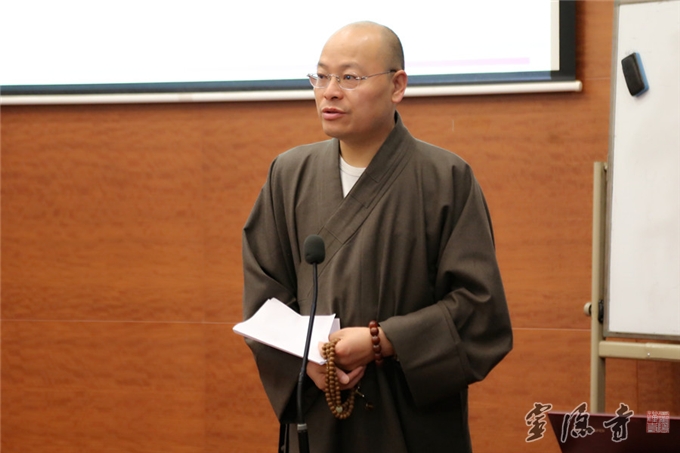
Ven. Master Guangquan enlightening the audience at the opening ceremony
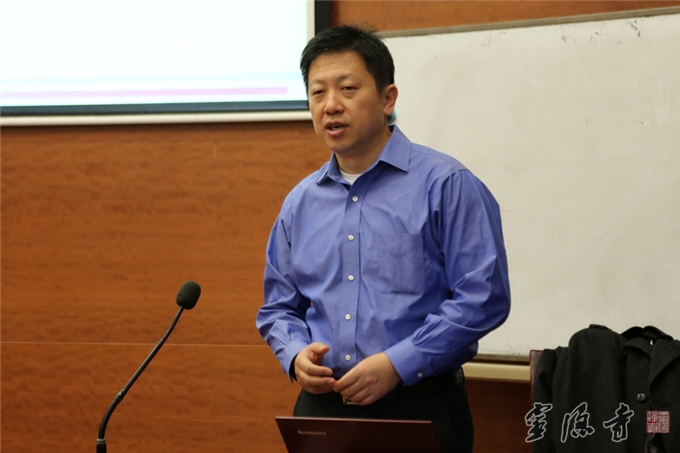
Professor Lv Feng lecturing on Human Resource Management
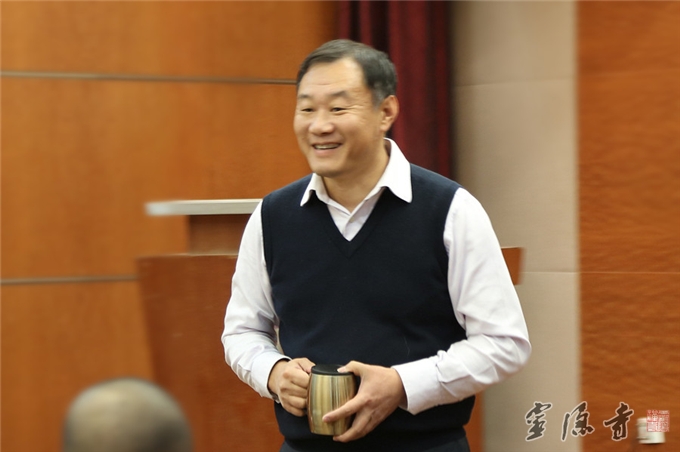
Professor Ning Xiangdong lecturing on Enterprise Management
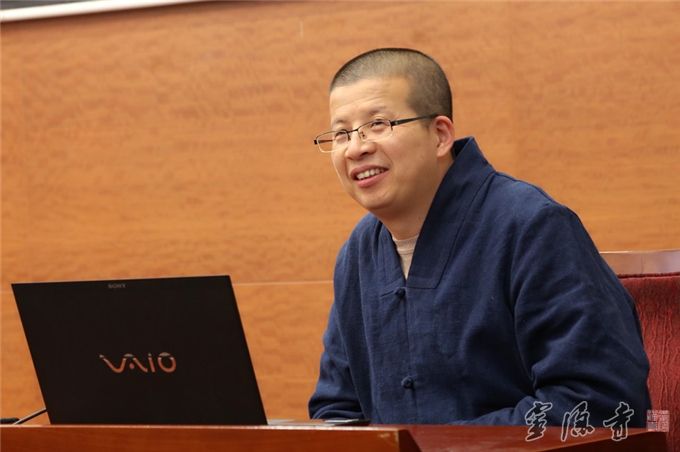
Ven.Shengkai lecturing on The Present and Future of Chinese Buddhism
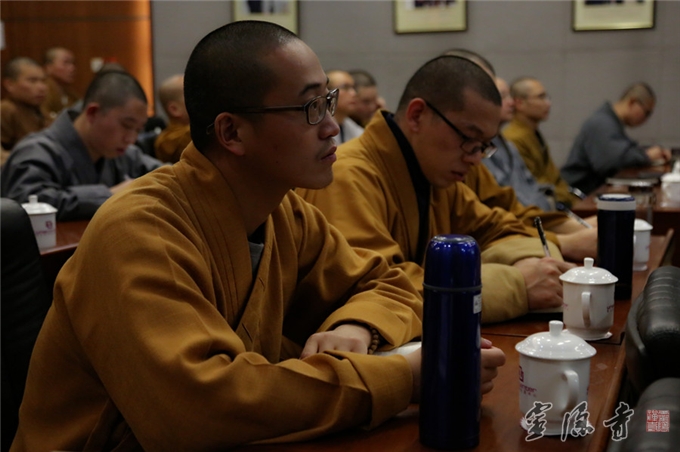
Buddhist masters listening attentively
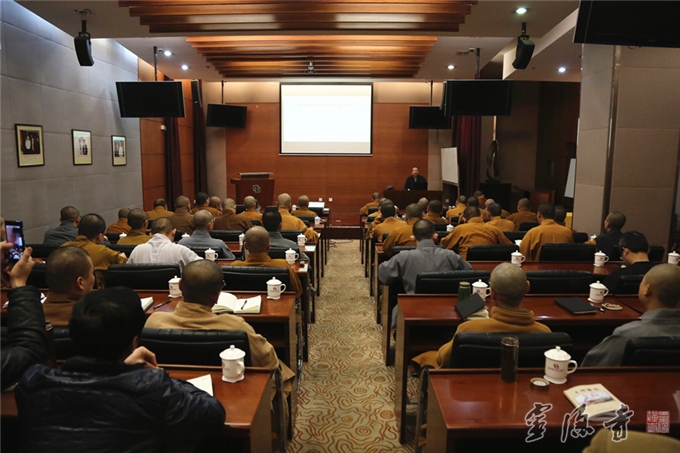
In the class